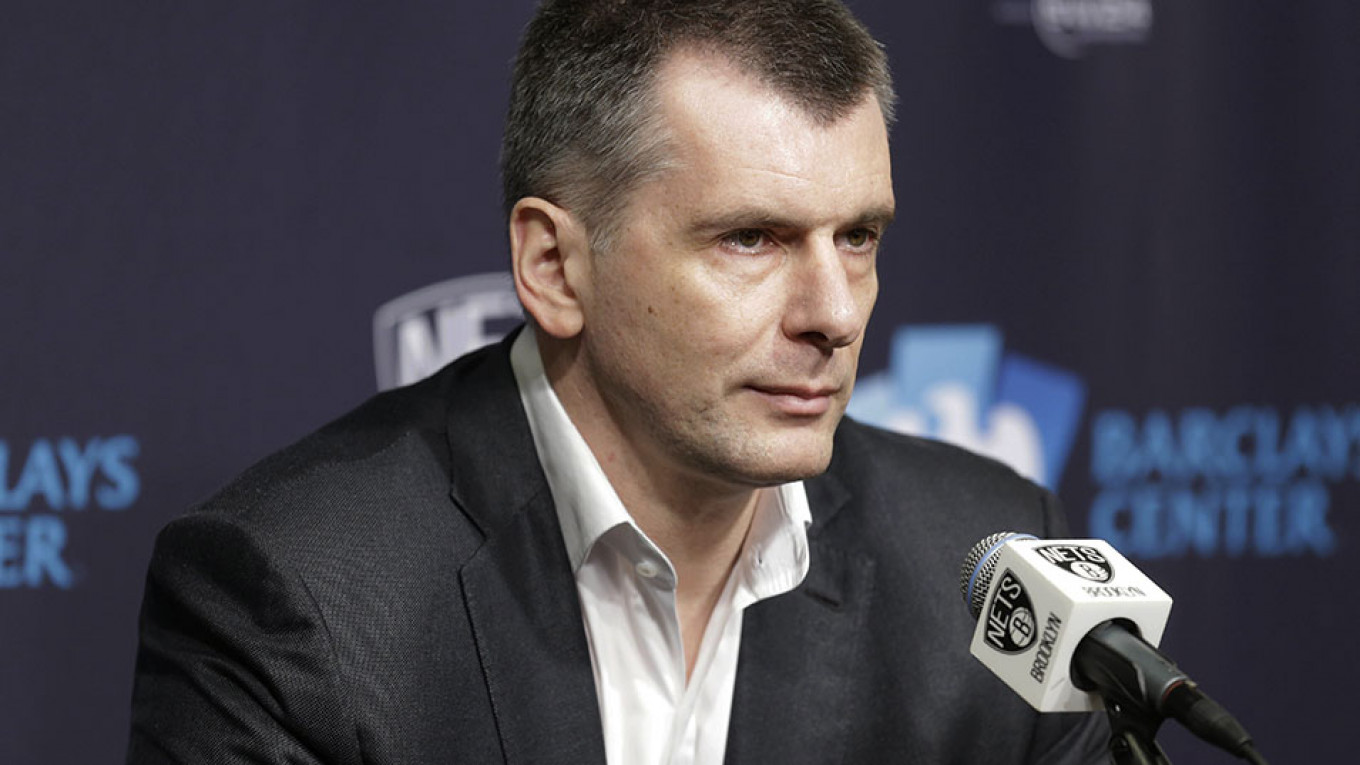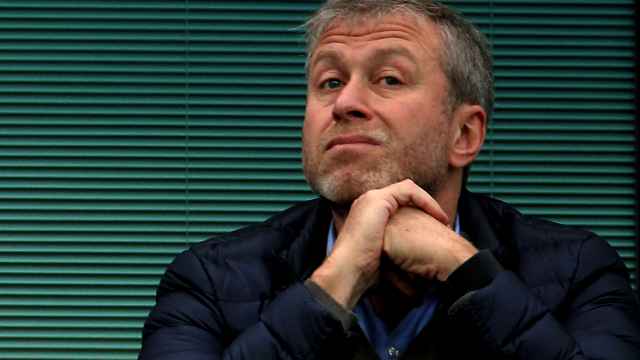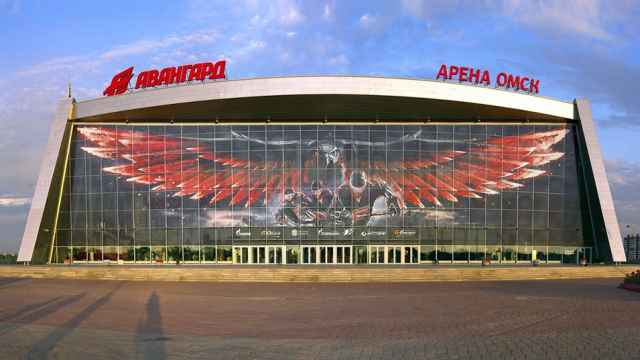Another year, and another Russian billionaire relinquishes ownership of a professional sports club.
The latest to do so is Mikhail Prokhorov, who’s selling his stake in the Brooklyn Nets and its arena for a record $3.5 billion to Joe Tsai, the Taiwan-born executive vice chairman of Alibaba Group Holding Ltd.
Last August, Alisher Usmanov sold his 30% stake in Arsenal football club for $730 million, ending a dispute with Los Angeles Rams owner Stan Kroenke over management of the London Premier League team.
The “wave of Russians” that invested in Western sports in the 2000s has given way to wealthy Chinese, said Dmitry Navosha, founder of website sports.ru. “The concept of sports as global entertainment is evident to them as incomes of NBA clubs and top-tier soccer leagues are growing largely due to Asian fans.”
Chinese investors have taken stakes in European football teams including England’s Aston Villa, West Bromwich Albion, Wolverhampton Wanderers and Southampton; Italy’s A.C. Milan and Inter Milan; Spain’s Atletico Madrid; and Slavia Prague in the Czech Republic.
Some of those ownership changes were short-lived. Billionaire Wang Jianlin’s Dalian Wanda Group Co. agreed to sell its 17% stake in Atletico Madrid last year amid increased scrutiny of what the Chinese government called “irrational investments” that resulted in capital outflows, and Tony Xia, chairman of the Recon Group, has given up control of Aston Villa.
Usmanov was the second Russian billionaire to pull back from an investment in the Premier League. Chelsea football club owner Roman Abramovich shelved a major redevelopment of its stadium, blaming an unfavorable investment climate. The decisions come amid worsening Russia-U.K. relations, with Britain accusing Russia of poisoning a former spy and his daughter in Salisbury, England.
Abramovich was also mulling a sale of Chelsea, frustrated by problems with his British visa renewal and concerned about the potential fallout should the U.S. expand sanctions against wealthy Russians and target him. A person familiar with the discussions said last year that the billionaire wanted 3 billion pounds for the club.
Today, beside Abramovich, only one other Russian mogul, Dmitry Rybolovlev, owns a top-tier foreign sports club outside of Russia. He controls the AS Monaco football club and recently shook up team management following poor results.
Inside Russia, billionaires sometimes support money-losing teams to maintain good standing with the Kremlin. Oil tycoons Leonid Fedun and Vagit Alekperov cover part of the budget of one of the most popular football clubs in the country — Spartak Moscow — and invested about $500 million to build a 42,000-seat arena. In June, Fedun said he will transfer ownership of the club to its fans in 2023.
Sergei Galitskiy, the billionaire founder of food retailer Magnit PJSC, started the Krasnodar football team in 2008 and has since invested more than $250 million in the club, its arena and a related sports academy.
Suleiman Kerimov, whose family controls Russia’s biggest gold producer, Polyus PJSC, acquired football club Anzhi Makhachkala in 2011 and boosted its budget to bring in stars such as Eto’o, Roberto Carlos and Guus Hiddink. But two years later he cut the team’s sponsorship and relinquished control in 2016.






